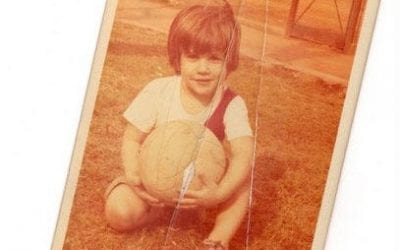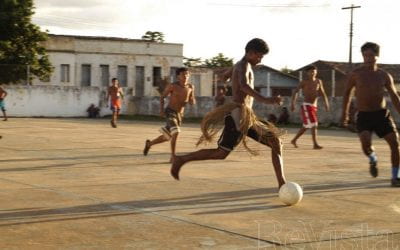I tried not to have my personal interests in sports and languages collide, but some things just can’t be avoided.
In the mid-1970s, after graduating with a business degree, I decided to apply to the Peace Corps. The Peace Corps tries to do its best to match the skills of potential volunteers with program needs. As I had played two sports in college and had coached youth programs, the Peace Corps recruiter suggested I might be a good fit for a sports administration program in Africa.
“No thanks,” I said. “I would much prefer to put my business degree, not my sports acumen, to good use, and I would really like to become fluent in a language that I could use in the future, preferably Spanish.”
“Well, we have a program in the management of savings & loan cooperatives in the Dominican Republic,” said the recruiter.
“Sounds great to me,” I replied.
Today, the Peace Corps requires that volunteers have a certain level of fluency in the relevant language before they begin their service. In the 1970s, volunteers like me with no language experience studied in an intensive language immersion program six to eight hours a day for three months. If you did not meet a certain level of Spanish proficiency after the three months, you were not permitted to start your volunteer service and were sent home. I trained in the capital of the Dominican Republic, Santo Domingo. One weekend, early in the training period, we took trips to our respective sites to familiarize ourselves with what would eventually become our home for the next two years. My site was a town of 3,000 in the northwestern part of the country. No one in the town spoke English.
Looking back, it is amusing how shaky my Spanish was. The deepest conversations I could have with my host family that weekend ran from “How many children do you have?” to “Your house is nice.” That was pretty much the full extent of my fluency.
On Sunday, when it came time to make the five and a half hour return trip to Santo Domingo, I took a carro público—a freelance taxi driven by a man whose main goal seemed to be to squeeze as many passengers as he could into his ancient car. He drove a rusty Datsun whose shock absorbers were but a distant memory.
I gave the driver a slip of paper with the Peace Corps office address in Santo Domingo, and we were off—that is me, threecampesinos, a baby goat and a couple of chickens—all stuffed in a car seemingly held together by rubber bands and chewing gum.
Despite my near complete lack of Spanish, my fellow travelers insisted on conversing with me. I did what I’ve seen others do in a situation like that: when they asked me a question, I would smile, nod my head and say “Sí.”
During this conversation, which seemed endless, the single word I could discern with my “considerable” fluency was volibol(volleyball), since it sounds similar in Spanish and English. I just kept smiling and nodding.
The car finally arrived in Santo Domingo and, to my surprise, made its way to the sports arena erected for the Central American and Caribbean Games, a sort of regional Olympics. It pulled up to the volleyball venue and my companions (except the chickens) looked at me expectantly.
Suddenly, the conversation that had taken place on the ride took a new shape in my mind:
“Hey you’re tall. Are you a volleyball player?”
“Yes, yes.”
“Are you playing in that big tournament?”
“Yes, yes.”
“It is going on right now, correct?”
“Yes, yes.”
“Do you want to go directly to the stadium?”
“Yes, yes.”
What could I do? I was not exactly in a position to explain where I really wanted to go and that I was not an international athlete. I did the only thing I could. I shook their hands, said adios and walked down the pathway to the stadium. My new friends were waving furiously from the car. I could only assume they were wishing me good luck.
Once the car was safely away, I came out of the stadium and made my way to the Peace Corps office, a two-mile walk.
On that long walk I continued that imaginary conversation, which veered to more dire scenarios:
“Hey, can you get us all free tickets for tonight’s match and leave them at the ticket window?”
“Yes, yes…”




